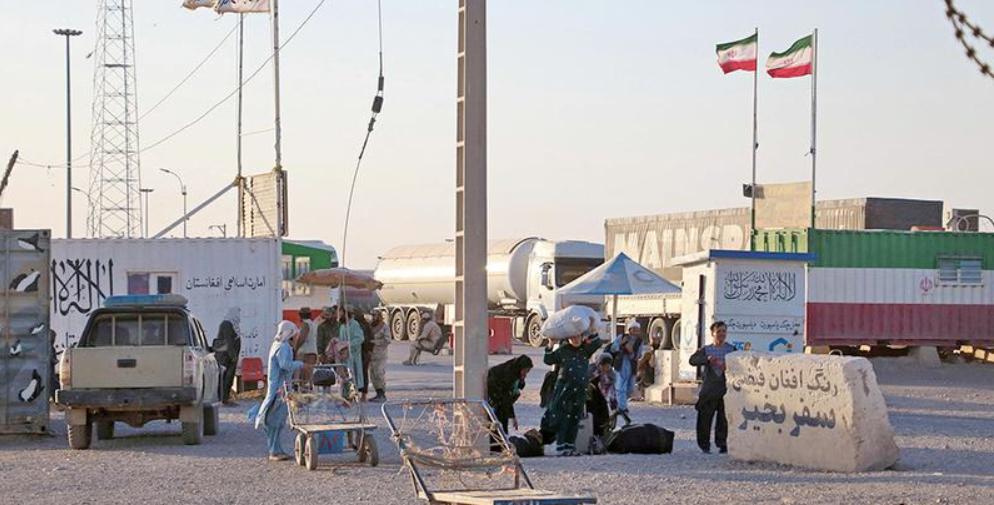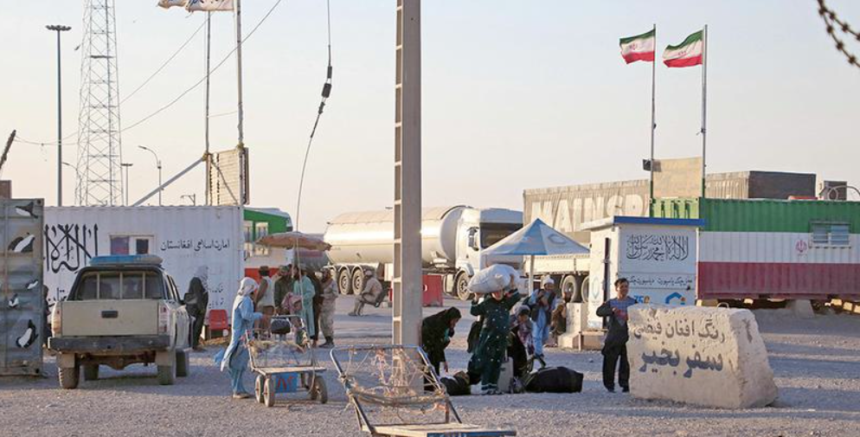Taliban, tensions have flared along the Afghanistan-Iran border, with reports of Afghan casualties raising concerns about the stability of the region. The Taliban, now the de facto rulers of Afghanistan following their takeover in August 2021, have launched an investigation into these reports as they attempt to manage their relations with neighboring Iran. The incidents on the border highlight the complex geopolitical landscape between the two countries, which have historically had a strained relationship. While both nations share a long border and deep historical ties, the current situation is further complicated by issues such as water rights, refugee flows, and the differing political ideologies of the Taliban and the Iranian government.
This article will explore the details of the reported incidents, the history of Afghan-Iranian relations, and the broader implications of these tensions for regional security and diplomacy.
2. The Border Incident: Reports of Afghan Casualties
The reports of casualties on the Afghanistan-Iran border surfaced after a skirmish between Afghan border forces and Iranian security personnel. The exact details of the conflict remain murky, with both sides offering differing accounts. According to Afghan sources, several Afghan nationals were killed and wounded after an altercation with Iranian border guards, allegedly over a border crossing dispute. Iranian officials, however, have downplayed the incident, claiming that Afghan individuals attempted to illegally cross the border, leading to the confrontation.
The area where the incident occurred is known for smuggling and illegal crossings, which have been a point of contention between the two countries for years. The border region has seen numerous such skirmishes in the past, but the current incident has gained significant attention due to the Taliban’s recent rise to power in Afghanistan. The group, now responsible for securing the nation’s borders, has stated that they are “investigating the reports” and are committed to maintaining peaceful relations with Iran.
3. Historical Tensions Between Afghanistan and Iran
The history of Afghanistan-Iran relations is marked by both cooperation and conflict. Despite sharing cultural, religious, and linguistic ties, the two countries have often been at odds over political and ideological differences. Iran, which is predominantly Shia Muslim, has long viewed the Sunni-dominated Taliban with suspicion, particularly during the group’s previous rule in the 1990s. The Taliban’s harsh treatment of the Shia Hazara minority in Afghanistan led to significant animosity between the two nations, with Iran reportedly supporting anti-Taliban forces during Afghanistan’s civil war.
Since the Taliban’s return to power in 2021, Iran has taken a cautious approach, balancing pragmatic engagement with concerns over the group’s ideological extremism. Tehran’s primary interests in Afghanistan include border security, refugee flows, and control over water resources from the Helmand River, which flows into Iran’s Sistan and Baluchistan province. Disputes over water rights have been a longstanding issue between the two nations, and tensions over the use of the river’s water have frequently flared up in the past.
4. Water Disputes: A Source of Conflict
One of the main sources of tension between Afghanistan and Iran is the ongoing dispute over water rights from the Helmand River. The river, which originates in Afghanistan, is crucial to both Afghan and Iranian agricultural regions. However, Iran has frequently accused Afghanistan of restricting the flow of water into its drought-prone Sistan and Baluchistan province, exacerbating water shortages and agricultural challenges.
In recent years, Afghanistan has constructed a series of dams on the Helmand River to boost its agricultural production and electricity generation. These projects, while beneficial for Afghanistan, have alarmed Iran, which fears reduced water flow into its territories. The Taliban, now in control of these resources, have continued the policy of prioritizing Afghanistan’s domestic water needs, which has further strained relations with Iran. 
The recent border skirmish may have been exacerbated by these water disputes, as both countries compete for limited resources in the region. With climate change and drought making water even scarcer, the conflict over the Helmand River is unlikely to dissipate anytime soon.
5. Taliban-Iran Relations Post-2021
Since the Taliban took control of Afghanistan in 2021, Iran has engaged with the group diplomatically, despite its reservations. Tehran has recognized the need to maintain stable relations with its eastern neighbor, particularly as it faces its own economic challenges and the potential for increased refugee flows from Afghanistan.
However, the relationship between the Taliban and Iran remains fragile. Iran’s concerns about the Taliban’s treatment of Shia minorities, particularly the Hazara community, have not disappeared. Reports of violence and discrimination against Hazaras under the Taliban’s rule have angered Tehran, though it has refrained from publicly condemning the group in order to maintain diplomatic ties.
The Taliban, on their part, have sought to reassure Iran that they will respect the rights of Shia Muslims in Afghanistan. They have also expressed a willingness to cooperate with Iran on economic and security issues, including border management and combating drug trafficking, which has long plagued the region. However, incidents like the recent border skirmish threaten to undermine this fragile cooperation.
6. The Refugee Situation: Another Point of Tension
Another major issue in Afghan-Iranian relations is the ongoing refugee crisis. Iran has long been a destination for Afghan refugees, with millions of Afghans fleeing war, poverty, and instability over the past four decades. Following the Taliban’s takeover, the number of Afghans seeking refuge in Iran has surged once again, adding to the country’s already substantial refugee population.
Iran, which is grappling with its own economic difficulties, has struggled to accommodate the influx of Afghan refugees. Many Afghans who cross into Iran do so illegally, seeking work or safety. This has led to frequent clashes between Afghan migrants and Iranian border guards, with reports of violence and mistreatment of Afghan refugees surfacing regularly.
The refugee issue has also fueled anti-Taliban sentiment among some Iranian officials, who blame the group for the deteriorating situation in Afghanistan. Iran has called on the international community to provide more assistance in managing the refugee crisis, but tensions over the issue remain high.
7. Regional Implications of the Border Skirmish
The recent border incident between Afghanistan and Iran has broader implications for regional security and stability. Both countries are located in a volatile region, surrounded by nations grappling with their own security challenges. For Iran, instability on its eastern border with Afghanistan adds to the already complex geopolitical landscape, as it faces pressures from the West, tensions in the Gulf, and ongoing conflicts in Syria and Iraq.
For the Taliban, maintaining stable relations with Iran is crucial as they seek to gain international recognition and stabilize their war-torn country. The group has been working to secure its borders with neighboring countries, including Pakistan, Uzbekistan, and Iran, as it tries to position itself as a legitimate government. However, incidents like the recent border clash risk undermining these efforts, particularly if they lead to further deterioration in relations with Iran.
The situation also has implications for other regional actors, including Pakistan and China. Pakistan, which has historically supported the Taliban, has its own concerns about border security and refugee flows. China, meanwhile, is interested in Afghanistan’s stability due to its investments in regional infrastructure projects, including the Belt and Road Initiative (BRI).
8. The Taliban’s Response: Investigating the Incident
In response to the reports of Afghan casualties on the Iran border, the Taliban have announced that they are investigating the incident. Taliban officials have emphasized their desire to maintain peaceful relations with all neighboring countries, including Iran. However, the group has also made it clear that they expect Iran to respect Afghanistan’s sovereignty and refrain from any actions that could escalate tensions.
The Taliban’s handling of the situation will be closely watched by both domestic and international observers. On the one hand, they must demonstrate their ability to manage Afghanistan’s borders and maintain security. On the other hand, they must navigate the complex dynamics of their relationship with Iran, balancing the need for cooperation with the desire to assert Afghanistan’s independence.
The outcome of the investigation could have significant implications for the future of Taliban-Iran relations. If the Taliban find evidence of wrongdoing by Iranian border guards, it could lead to a diplomatic rift between the two countries. Conversely, if the investigation concludes that the incident was a misunderstanding or the result of illegal border crossings, it could pave the way for improved cooperation between the two sides.
9. Conclusion: A Fragile Peace on the Afghanistan-Iran Border
The reports of Afghan casualties on the Iran border underscore the fragile nature of Afghanistan-Iran relations in the post-Taliban era. While both countries have expressed a desire for cooperation, historical tensions, ongoing disputes over resources, and the refugee crisis continue to strain their relationship.
The Taliban’s investigation into the border incident will be a critical test of their ability to manage Afghanistan’s foreign relations and maintain stability on its borders. At the same time, the situation highlights the broader challenges facing the region, where issues like water scarcity, refugee flows, and security concerns are likely to fuel tensions for years to come.
As the investigation unfolds, both Afghanistan and Iran will need to find ways to de-escalate tensions and work towards a more stable and cooperative relationship. Failure to do so could have serious consequences, not only for the two countries involved but for the wider region, which remains vulnerable to conflict and instability. ALSO READ:-25 Killed, Including a Mayor, in Israeli Strikes in Lebanon: A Critical Escalation in Regional Tensions





